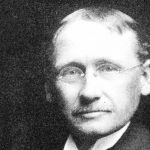Scientific Management Theory and Taylorism

Scientific Management Theory: this article explains practically Scientific Management theory, also called Taylorism by Frederick Taylor. The principles of scientific management are the underlying factors for successful production and quality management. This article covers the history, definition and theory of scientific management. It also touches on modern scientific management. Enjoy reading!
The history of the principles of Scientific Management
Over 100 years ago, the American mechanical engineer Frederick Taylor published his ideas about his principles of scientific management in 1911, to encourage industrial companies to proceed to mass production.
As one of the founders of the scientific management theory and movement called Taylorism or Taylor’s Principal, Frederick Taylor aimed at deploying workers as efficiently as possible because at the time, people were looked at as an extension of the machinery.
What is Scientific Management?
As a mechanical engineer at a steel corporation in Philadelphia, Frederick Taylor thought about how workers could perform their tasks as efficiently as possible, he studied human labour and analysed the work of workers on the work floor (time and motion study). This resulted in activity analyses, time studies and methodology studies, the start of the scientific management theory and Taylorism.
Through the activity analyses, he was able to identify what activities workers had to perform when carrying out their tasks during their work process. He also conducted time measurements for all kinds of activities that were carried out by workers during the production process. In the methodology studies, he evaluated which working method could best be used to ensure maximum productivity.
Elementary division of labour
Frederick Taylor aimed at continuously increasing the efficiency of the production and work process. He divided labour into an elementary division of labour in which every worker was allocated their own tasks that had to be repeated constantly. Everyone was assigned their own programme that consisted of successive actions and this was aimed at worker’s levels of knowledge and skills.
This brought about considerable time savings and because of this routine, productivity increased rapidly. Taylor felt it was important to select the right person for the right job and to leave the planning and thinking to the specialists.
Eight bosses system
As a result of his endeavours for specialization, Frederick divided the management tasks into a number of subtasks / specific tasks. This meant that every worker had a different manager for each of the managerial subtasks.
In this, Frederick Taylor distinguished between preparatory and executive /control specific tasks. Within this two-way classification, he added another allocation of jobs which resulted in the eight bosses system or functional organization system. He immediately applied this eight bosses system to the production unit of an engineering works.
Bethlehem experiment
Taylor wanted to eliminate as many inefficient working methods as possible. He therefore carried out the famous Bethlehem experiment at the Bethlehem Steel Company. After having observed the workers during his time and motion study, he thought that the 12.5 tonnes of pig iron a worker had to load onto a railway wagon per day could be increased to approximately 48 tonnes per worker per day.
To prove this theory, Frederick experimented with working hours, rest periods, weight moved in a given period, working methods and tools.
He selected the so-called “Pennsylvania Dutchman” for this purpose, a very strong, industrious man of Dutch origin, who had to carry out all of his work directions accurately. In return, he was promised a higher wage per unit performance, which resulted in the fact that the man was able to handle 47.5 tonnes a day. This was followed by many other worker who also wished to earn about 60% more pay.
However, Frederick Taylor was met with hostility. Many workers were afraid that this increased productivity would lead to unemployment and the labour unions called on them to carry out a systematic production output and work at their own pace only.
Healthy management
According to Taylor, a healthy management is based on the scientific management theory approach to work in which objective standards are set by means of time, method, motion and fatigue studies.
In addition, it was necessary to consider which work would best suit a worker. A continuous and close cooperation between management and workers would be of vital importance in this. A smooth production planning, cost analysis and remuneration system would enhance productivity substantially.
Modern scientific management
Even today, the scientific management theory and Taylorism is still applied to production processes and unnecessary movements and/or actions that threaten to reduce productivity are examined carefully. Employees are cogs in the organization and they jointly determine the level of productivity.
Critics believe that Taylorism undervalues the social needs of people such as appreciation and recognition. Decisions are purely made on rational grounds in which performance measurement is a central component. Nevertheless, in commercial organizations, appreciation is linked to the extra performance that is delivered.
In addition to basic pay, bonuses can be earned and targets and premiums are used. This system is based on Scientific management called Taylorism.
Now It’s Your Turn
What do you think? Is the scientific management theory applicable in today’s modern economy and management? Do you recognize the practical explanation of do you have more suggestions? What are your success factors for practical scientific management?
Share your experience and knowledge in the comments box below.
More information
- Conti, R. F., & Warner, M. (1994). Taylorism, teams and technology in reengineering’ work‐organization. New Technology, Work and Employment, 9(2), 93-102.
- Kanigel, R. (2005). The one best way: Frederick Winslow Taylor and the enigma of efficiency. MIT Press Books.
- Littler, C. R. (1978). Understanding taylorism. British Journal of Sociology, 185-202.
- Spender, J. C., & Kijne, H. J. (1996). Scientific management: Frederick Winslow Taylor’s gift to the world?. Kluwer Academic Pub.
- Taylor, F. W. (2014, 1911). The Principles of Scientific Management. Harper and Brothers.
How to cite this article:
Mulder, P. (2015). Scientific Management Theory and Taylorism. Retrieved [insert date] from Toolshero: https://www.toolshero.com/quality-management/scientific-management/
Original publication date: 09/21/2015 | Last update: 04/12/2024
Add a link to this page on your website:
<a href=”https://www.toolshero.com/quality-management/scientific-management/”>Toolshero: Scientific Management Theory and Taylorism</a>













7 responses to “Scientific Management Theory and Taylorism”
Taylor theory only focuses on efficiency neglecting effectiveness.
Suggestion: read the book “Team of Teams” and then revisit the value of this methodology. How many items from early 20th century provide value in today’s society?
Was scientific management the reason where level of life increased by providing above normal wage?
what is publish date of this article?
Thank you for your comment, Asela. See the citation set-up at the end of the article (2015)
this theory is not applicable in africa because it limits the innovatiness
Thank you for your comment, Derick.